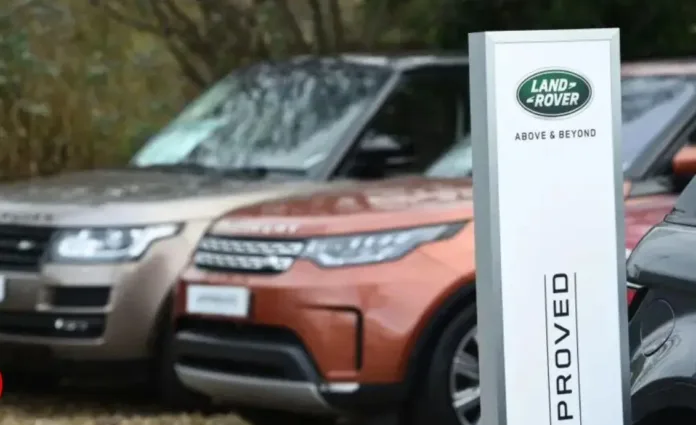JLR crawls back online after cyber-attack, but factories remain shut and suppliers face ruin
Jaguar Land Rover has begun slowly reviving its IT systems after a crippling cyber-attack brought Britain’s biggest carmaker to a standstill.
The company said a “phased restart” was under way, with key parts of its financial system restored, enabling it to process payments to suppliers and register new vehicle sales. Its global parts logistics centre, which supplies spares to customers, is also returning to full operations.
But despite progress, production lines remain idle. JLR confirmed its factories in Solihull, Wolverhampton and Halewood — which normally produce around 1,000 cars a day — will stay shut until at least next month. Since 1 September, 30,000 workers have been sent home, with no firm date for a return.
The disruption is being felt far beyond the company’s gates. More than 100,000 people are employed in JLR’s supply chain, and many small suppliers say they are on the brink of collapse. Some firms rely entirely on JLR contracts, and without car production, cashflow has dried up.
“I am acutely aware of the urgency of the situation,” Prime Minister Sir Keir Starmer told the BBC. “These companies are inevitably finding themselves in difficulty, through no fault of their own.” He admitted, however, that no final support package has been agreed.
Embed from Getty ImagesIdeas floated range from government-backed loans to the purchase and stockpiling of car parts in order to keep suppliers afloat. But industry voices remain sceptical. “We don’t need promises, we need help,” one supplier warned, arguing ministers underestimated the complexity of the supply chain.
Unions have called for a furlough-style scheme to protect jobs, but ministers have privately dismissed the idea as too expensive.
Instead, Business Secretary Peter Kyle has been tasked with designing a “viable” rescue package. Industry Minister Chris McDonald said JLR’s tentative recovery was “welcome progress towards JLR’s recovery” and a vital step in supporting cash flow.
The scale of the disruption underscores the precariousness of modern carmaking, where thousands of components must arrive in the right place at the right time. With JLR’s IT networks knocked offline since August, the entire production process has ground to a halt.
Behind the scenes, tensions are mounting. Following a private meeting with suppliers, the chair of the Business and Trade Select Committee, Liam Byrne MP, warned the Chancellor that some firms had only “weeks left” before financial collapse began tearing apart the supply chain.
The government has not ruled out stockpiling parts, but logistics present formidable obstacles. Unlike other industries, car production cannot run on warehouses full of unused components; it depends on a carefully tuned just-in-time system.
Suppliers, already weakened by Brexit and the pandemic, fear this cyber-attack could be the final blow. While some sell to multiple carmakers, many smaller companies rely solely on JLR. Without urgent help, they say, livelihoods will be lost.
JLR, owned by India’s Tata Motors, insisted its recovery programme was “firmly under way” and pledged to clear the backlog of payments as quickly as possible. “We recognise this is a difficult time for all connected with JLR,” a spokesperson said.
For now, however, Britain’s most famous luxury car brand remains paralysed. Factories silent, workers stuck at home, and suppliers begging for rescue — the fallout from the cyber-attack continues to reverberate through the UK’s manufacturing heartlands.
